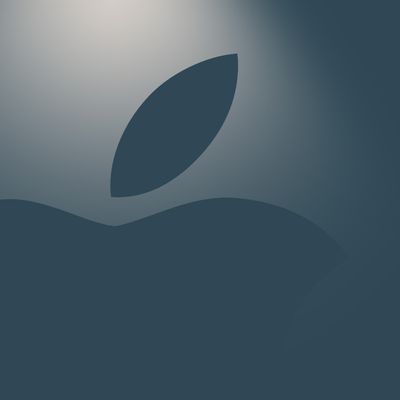Apple has released a security update for OS X Snow Leopard, Lion and Mountain Lion, Security Update 2013-003 for Snow Leopard, Lion and Mountain Lion. Apple's security update Knowledge Base article has not been updated with details about the release, but changes should appear soon.

About Security Update 2013-003 (Lion)
Security Update 2013-003 is recommended for all users and improves the security of OS X.
For information on the security content of this update, please visit this website: http://support.apple.com/kb/HT1222
The update is available through the Mac App Store and Apple's software download website for Snow Leopard, Lion and Mountain Lion.























Top Rated Comments
The details have arrived via Apple's security-announce mailing list.
-----BEGIN PGP SIGNED MESSAGE-----
Hash: SHA1
APPLE-SA-2013-07-02-1 Security Update 2013-003
Security Update 2013-003 is now available and addresses the
following:
QuickTime
Available for: Mac OS X 10.6.8, Mac OS X Server 10.6.8,
OS X Lion v10.7.5, OS X Lion Server v10.7.5,
OS X Mountain Lion v10.8.4
Impact: Playing a maliciously crafted movie file may lead to an
unexpected application termination or arbitrary code execution
Description: A buffer overflow existed in the handling of Sorenson
encoded movie files. This issue was addressed through improved bounds
checking.
CVE-ID
CVE-2013-1019 : Tom Gallagher (Microsoft) & Paul Bates (Microsoft)
working with HP's Zero Day Initiative
QuickTime
Available for: Mac OS X 10.6.8, Mac OS X Server 10.6.8,
OS X Lion v10.7.5, OS X Lion Server v10.7.5,
OS X Mountain Lion v10.8.4
Impact: Playing a maliciously crafted movie file may lead to an
unexpected application termination or arbitrary code execution
Description: A buffer overflow existed in the handling of H.264
encoded movie files. This issue was addressed through improved bounds
checking.
CVE-ID
CVE-2013-1018 : G. Geshev working with HP's Zero Day Initiative
QuickTime
Available for: Mac OS X 10.6.8, Mac OS X Server 10.6.8,
OS X Lion v10.7.5, OS X Lion Server v10.7.5,
OS X Mountain Lion v10.8.4
Impact: Viewing a maliciously crafted movie file may lead to an
unexpected application termination or arbitrary code execution
Description: A buffer underflow existed in the handling of 'mvhd'
atoms. This issue was addressed through improved bounds checking.
CVE-ID
CVE-2013-1022 : Andrea Micalizzi aka rgod working with HP's Zero Day
Initiative
Security Update 2013-003 may be obtained from the Software Update
pane in System Preferences, or Apple's Software Downloads web site:
http://www.apple.com/support/downloads/
The Software Update utility will present the update that applies
to your system configuration.
For OS X Mountain Lion v10.8.4
The download file is named: SecUpd2013-003.dmg
Its SHA-1 digest is: 5452c463819106ec30e9f365031f65f1b6c538c0
For OS X Lion v10.7.5
The download file is named: SecUpd2013-003.dmg
Its SHA-1 digest is: c94eeaee2e329f75830140598c8973b6a8e1b22d
For OS X Lion Server v10.7.5
The download file is named: SecUpdSrvr2013-003.dmg
Its SHA-1 digest is: 849d5d4fd5c5a46f84d3607a84b6957fe4f10a00
For Mac OS X v10.6.8
The download file is named: SecUpd2013-003.dmg
Its SHA-1 digest is: 59f7be08ba2f3e343539c011793f7e31773f9caa
For Mac OS X Server v10.6.8
The download file is named: SecUpdSrvr2013-003.dmg
Its SHA-1 digest is: 7586022106c870e46139016ddc5e667def454430
Information will also be posted to the Apple Security Updates
web site: http://support.apple.com/kb/HT1222
This message is signed with Apple's Product Security PGP key,
and details are available at:
https://www.apple.com/support/security/pgp/
-----BEGIN PGP SIGNATURE-----
Version: GnuPG/MacGPG2 v2.0.17 (Darwin)
Comment: GPGTools - http://gpgtools.org
iQIcBAEBAgAGBQJR0zpyAAoJEPefwLHPlZEwdZ8QAJvykdoFKGOHgn9HzpFJ+tbm
0uXPFrExBTcgpypxiZngJJ7Py46FyFvHR9EkfppJDBVEURDpu3/AJRBCi5GnvpoV
7yGPiy5vnHJzUn+wvKUloKIKQQoEbOqmh4f0lfgMsD5CQyZP4f2uulW3fSXrJNT2
bVUc8VrVuw3QSvjeIsl7ZneLHvCv/yZ8wepWS3bR8vPnyv7jLHtNbryKGL8Qhiwx
MZEMaV1xQzKn82+0J4C5+TXsoqxLGKZMmlHjY3XbueQaV4NyU6hHnWdhjKjQ7aI1
frPRoE5tPuv+uMI51bxHNXT7vTYKVaBO+d2RVLclGRXvWm0l0q8N+liNEGrnYNY/
nD3A6KriFyONILSMOeHQUCh5CHDmuNhArtOMRICcQqBUfbVQ4XbDyKi7+4vv1Eug
r4p8ViN5uM2SvbIfsmZR7VsydvxJZV9uiQmcVQRqu4Yu80jKqyBV0qHZtTnnC0td
gL0vqYY7JuSRB3QDOzWPvRk+x4KdCHNQitdqj+fSq0iqFKb3ovvOn7Ug+UEpq60P
EIiRORMtj/Gh/LmlVJg62Mtoq+dY/g5z1RBPBVfEINbMyTMFStqRtVcWFo2Augo/
ucFFQ671Xn8PoMJ/5PhGNjDCDSBzCyyAY8WGnMWS4uiIXt+rsrtBavc1L7j3LuYD
R0og2PzHJPrZVEzhSZBn
=0jKe
-----END PGP SIGNATURE-----
----------
That's the normal pattern. When Apple releases a security update it usually incorporates earlier security updates going back to the last minor system version number update (which incorporated all security updates prior to that point), so that people installing the system from scratch only need to apply a single system version update followed by a single security update, instead of multiple security updates.
This means that security updates are generally larger for older major system versions, because they have had a longer time since the last minor version number update, and more security updates have accumulated.
Snow Leopard has been accumulating security updates since 10.6.8 was released in June 2011.
Lion has been accumulating security updates since 10.7.5 was released in September 2012.
Mountain Lion's security update only needs to include this batch of fixes, since all earlier ones are included in 10.8.4, which was released in June 2013.
Did you actually read anything or did you jump straight to comment? Jack wagon...